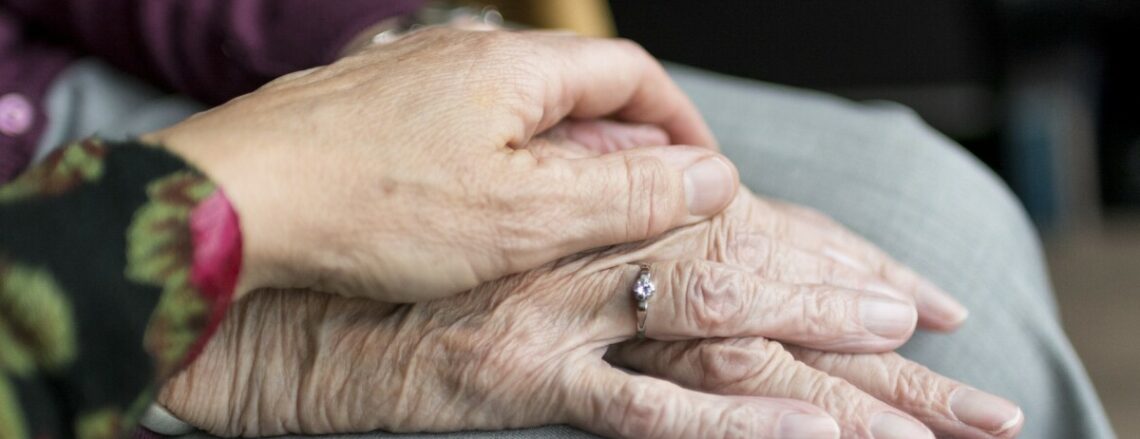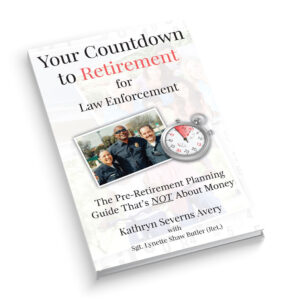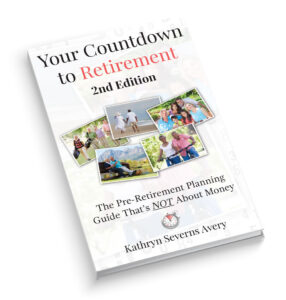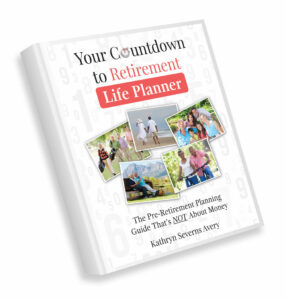It's Not Just About the Money!
Securing Your Support Network
-
Author : Your Countdown to Retirement
Date : May 6, 2019
Category : Health and Wellness, Redefining Retirement, Relationships
Comments : 0
Like : 0

By Kathryn Severns Avery
Those of us unfortunate enough to have caught the latest flu bug have endured a very uncomfortable sick season. I came down with it with a vengeance Easter night. Body aches, chills, barky cough, and malaise were my biggest symptoms. Fortunately, today I’m on the mend.
But this illness brought up a perplexing thought. As I age, who will take care of me when I am sick? I have no children. My extended family does not live in the area. I am blessed with wonderful neighbors, but would they have been there to catch me when I fainted yesterday like my husband did?
The certainty I had in my 30s, 40s, and early 50s that I can care for myself has been shaken. Yes, I will recover from the flu, and my confidence in my ability to heal and care for me will undoubtedly return. However, my husband is 11 years older than I am and it is likely he will predecease me. That means I could be alone for decades.
We need to acknowledge things we knew would happen in the distant future that are now much closer to reality. Denying that change is happening doesn’t stop it and hoping for the best isn’t a plan. While having a neighbor you can ask for help is wonderful, it is not the same has having someone under the same roof to look out for you.
So what are the options and how can I and others like me begin to create a support network for the future?
Ask for help
“I don’t want to be a bother.” or “They’re so busy, I can’t ask them.” are things we may tell ourselves. Fortunately, most people are incredibly generous with their time and are happy to help when asked. What is difficult for many is the asking. What is a bigger burden for everyone is not asking for help and letting the problem get larger.
Who can you call at 2 a.m.?
Do you have someone you can call at 2 a.m. for help? If you need assistance, having someone you can call to help you evaluate your situation is a godsend. Just knowing that they are there is often enough to help reduce anxiety and improve the situation. Your insurance company may have a 24-hour helpline you can call to ascertain whether your condition warrants immediate medical intervention or whether it can wait.
Caring community
Many houses of worship have a caring community outreach program to help those in need. Investigate what is offered and how you can volunteer. There are both for profit companies and non-profit organizations that provide assistance with things like transportation, meals, help at home, and other services. The best time to research them is before you need them. That way you will already know whom to call in your time of need.
Lean in to the discomfort of aging
Like many fellow baby boomers, I am uncomfortable with the fact that I am aging. Yet, the more I lean in to this truth, the more powerful I am. I have choices and options when I embrace what is. I suffer in fear and ignorance when I do not.
Start talking about this
You are not alone. There are 76 million baby boomers in the United States who are all getting old. How we handle this reality is up to us. The more we talk about what is happening and share what we are learning, the more we can help each other and prepare ourselves for the future. Healthcare is a thorny issue with no easy resolution. The more informed we are and the more reliant we are on ourselves to take care of our health, the better our prognosis for a happier, healthier life.
If you are looking for ideas or guidance on how to organize your own support structure as you move into retirement contact us! We’d love to share some insight.
Subscribe to YCTR!
Latest Blog Posts





